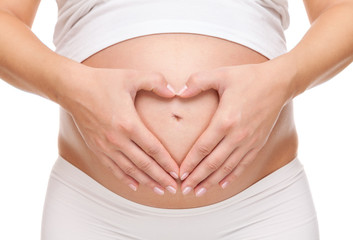Latest Update
 09 Mar 2021
09 Mar 2021 8 Dental Myths Demystified
8 Dental Myths Demystified
Myth 1 – White teeth are healthier than yellow teeth
Everyone wants a white and bright smile. It is aesthetically pleasing to have whiter teeth however whiter teeth are not necessarily healthier than yellow teeth. If teeth do not have decay and gums are healthy then despite the colour, your teeth are still healthy. Teeth colour is similar to skin colour, it is hereditary and doesn’t have anything to do with the health of your teeth.
In saying that, this only applies for natural tooth colour. If your teeth are yellow or stained due to calculus and plaque build-up, it is not considered healthy and you should consider visiting the dentist before this build-up causes any decay or gum problems.
Myth 2 – Bleaching teeth is dangerous
Yellow and healthy teeth do not need to be whitened if you are happy with the colour. If you desire to have whiter teeth to enhance your smile, there is nothing to worry about as whitening or bleaching can be easily done. Contradicting general belief, whitening is a safe procedure. Teeth bleaching is not only a less costly alternative to veneers; it is a conservative and non-invasive technique which is safe and effective. Bleaching gel produces free oxygen radical to lighten teeth without changing the tooth structure.
Myth 3 – Flossing is not important
It is absolutely not correct that flossing is not important. All teeth have five surfaces and two of those surfaces are in contact with adjacent teeth. Toothbrushes cannot clean in-between the two teeth. Floss can slide between these two teeth and clean these surfaces. Insufficient cleaning of these surfaces will lead to tooth decay and gum problems. It is important to floss at least once a day to maintain optimum oral health.
Myth 4 – Veneers require aggressive preparation
Veneers are a common procedure nowadays to improve your smile and confidence. Many times people want veneers to improve smile but are under impression that it will be quite damaging to your teeth. With material and procedural improvements, veneers only need minimal prep of 0.3 to 0.5 mm and sometimes no prep. In some instances where major corrections are needed, teeth can be aligned better before doing veneers to conserve tooth structure. Don’t deprive yourself of a confident smile!
Myth 5 – The harder and more often you brush, the healthier your teeth will be!
Toothbrushes are the easiest way to remove plaque, when you brush your teeth twice a day you keep your plaque levels to a minimum while reducing the about of abrasive forces applied to your teeth. When you brush more often you are not necessarily removing more plaque while increasing the risk of abrasion to your teeth. These abrasions can wear down your enamel and reduces the protection your tooth has against decay and sensitivity. Brushing twice a day with a soft toothbrush for two minutes and flossing once a day is the perfect way to maintain your oral health.
Myth 6 – Dental treatment should be avoided during pregnancy
There is an exaggerated response to plaque in pregnancy due to hormonal changes, which causes excessive bleeding and inflammation from gums in pregnancy. Plaque can cause decay, if left untreated decay can get worse and cause serious problems. It is better to maintain regular hygiene appointments to avoid any surgical treatment in third trimester. If regular appointments are not maintained this increases the risk to the baby and the parent.
Myth 7 – Dental x-rays are unnecessary
X-rays are very important for many different reasons; we recommend x-rays every two years to check your mouth is healthy and free of issues such as gum disease, tooth decay and bone loss. They play a vital role in check-ups, allowing us to catch potential problems earlier, before they become painful and expensive. They also can be used to diagnose tumours and cysts in the mouth or jaw. X-rays are also a good way for you to see for yourself the visible, existing physical conditions.
Myth 8 – Scaling is not good for teeth
Scaling is very important for teeth and gum health, if not done regularly it can cause chronic periodontal disease. Plaque build-up has been linked to an increased risk of cardiovascular conditions. You may be more susceptible to gum disease if you have other systemic diseases like diabetes, cardiovascular disease or rheumatoid Arthritis. Plaque builds up on your teeth and gums, although you may be brushing and flossing it is very hard to clean in all the little nooks and crannies. Although this regular clean is needed every day, twice a day; it is good to have a big ‘spring clean’ every six months where we scale and polish your teeth while looking for any new decay.
 17 Jun 2020
17 Jun 2020 Can teeth get worse during or after pregnancy?
There is an old saying that you should expect to lose a tooth for every baby born which is more a myth than the truth. Women generally complain that the baby has taken calcium from their teeth and has caused holes in the teeth. This is not true. Although there can be problems for teeth and gums during pregnancy, a baby taking calcium from their mother’s teeth is far from true. A baby can take calcium from their mother’s bones but certainly not from teeth.
For bone strength, it is essential to include calcium-rich foods in your diet during pregnancy and breastfeeding. However, be reassured that babies do not draw the calcium out from your teeth although there is some teeth problem which can happen during pregnancy. So there is an element of truth as well in the concern but due to mostly different reasons than customarily believed.
The body goes typically through many changes during pregnancy which can affect mother’s oral health. The main differences which can affect the oral health are:
- Hormonal changes which lead to worsening of gum response to plaque and can result in gum conditions like :
- Gingivitis (gum inflammation) – which has symptoms including swelling of the gums and bleeding, particularly during brushing and flossing between teeth.
- Worsening of pre-existing chronic periodontal disease in pregnancy may exacerbate untreated gum infection and can lead to tooth loss.
- Pregnancy epulis or pyogenic granuloma – a localised enlargement of the gum, which is prone to bleeding. Epulis may require additional professional cleaning, and rarely excision.
- Reflux or morning sickness leading to erosion of teeth and causing sensitivity.
- Changes to dietary habits and sugar cravings leading to increased risk of tooth decay.
- Neglect and poor routine of brushing, due to being occupied with the baby and exhaustion. It’s especially important to keep up your routine, as poor dental health during pregnancy has been associated with premature delivery, intrauterine growth restriction, and preeclampsia.
You are less likely to have dental problems during pregnancy if you maintain good oral hygiene habits. Suggestions include:
- Avoid brushing your teeth immediately for an hour after vomiting. Reason being that stomach acids can weaken enamel after vomiting, and the vigorous action of the toothbrush may scratch the tooth enamel.
- Rinse your mouth thoroughly with plain tap water.
- Use a fluoridated mouthwash and fluoridated toothpaste.
- Brush your teeth after having sugary snacks.
- Brush your teeth at least twice daily with fluoridated toothpaste.
- Floss between your teeth.
- Visit your dentist regularly.
Things to remember:
- The demands of pregnancy can lead to particular dental problems in some women.
- You are less likely to have dental problems during pregnancy if you already have good oral hygiene habits.
- With proper dental hygiene at home and professional help from your dentist, your teeth should stay healthy during pregnancy.
